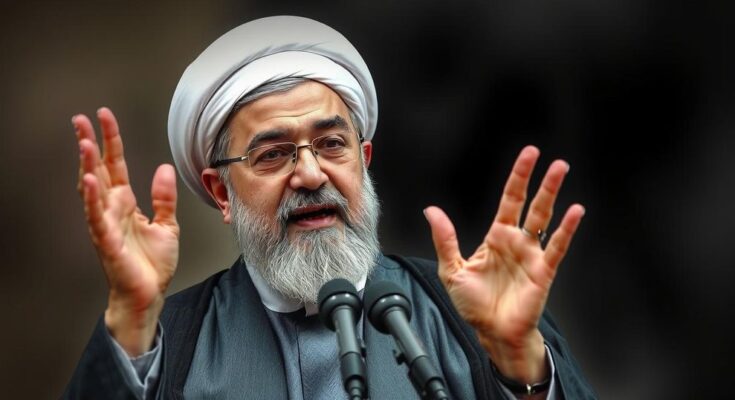Ayatollah Ali Khamenei has attributed the fall of Bashar al-Assad to a conspiracy involving the United States and Israel, while also implicating a neighboring country. He reaffirmed Iran’s commitment to its alliance with Syria and rejected suggestions of a weakened Iranian influence in light of recent events, arguing that external pressure would only strengthen Iran’s resolve in the region.
In his recent address, Iran’s Supreme Leader Ayatollah Ali Khamenei claimed that the fall of former Syrian President Bashar al-Assad was orchestrated by a coalition of the United States and Israel. He asserted that their actions are part of a broader conspiracy against Syria, and he indirectly criticized a neighboring state that he alleged also played a significant role in this outcome. Khamenei emphasized that despite the changes in Syria, Iran’s connection with Damascus would remain strong, denying any notion that Iran’s influence in the region would diminish. He reaffirmed his belief that Iranian intelligence had previously alerted the Syrian leadership to impending threats and accused Damascus of overlooking these warnings. The Supreme Leader stressed that Iranian strength would only grow in response to adversity, contradicting views presented by officials in the United States regarding Iran’s position in the regional balance of power.
The recent political upheaval in Syria saw the ousting of Bashar al-Assad, marking a significant shift in the Middle Eastern geopolitical landscape. The region has witnessed complexities involving several nations, notably Iran’s strategic alliance with Assad, which served as a bulwark against US and Israeli influence. The backdrop includes numerous allegations of foreign intervention in the Syrian conflict, highlighting the multifaceted relationships that exist and the ongoing regional tensions involving neighboring countries. As Iran navigates this new reality, its leadership remains firm on maintaining its influence and staying engaged in Syrian affairs, despite external pressures and changes.
In summary, Ayatollah Ali Khamenei’s statements illustrate Iran’s determination to sustain its influence in Syria despite the challenges posed by external forces, particularly the United States and Israel. His assertions of a conspiracy against al-Assad reflect broader geopolitical dynamics in the region, as Iran seeks to reassure its allies and maintain its position within the so-called ‘axis of resistance.’ This rhetoric indicates Iran’s expectation of continued relations with Syria and emphasizes its resilience in the face of adversity, positioning itself as a critical player in Middle Eastern politics.
Original Source: www.aljazeera.com




